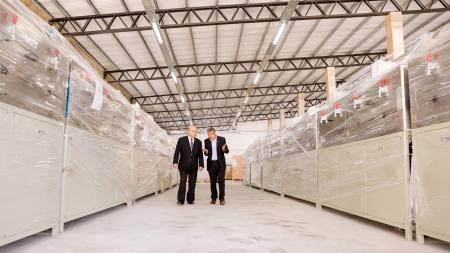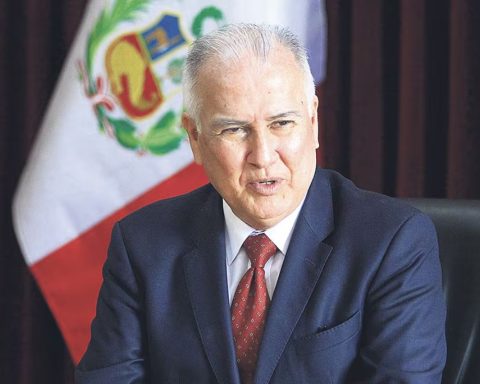With the arrival of more than 115 tons of technological equipment from Chinathe installation of the first equipment for the commissioning of UniLiB, the first National Plant for the Technological Development of Lithium Cells and Batteries, began on a property belonging to the National University of La Plata (UNLP) in the Buenos Aires capital.
From the strategic alliance between the UNLP and Y-TEC, the technology company of YPF and the Conicet, the country will be in a position to add value to this resource to manufacture cells and batteries and develop more efficient, cleaner and lighter energy storage systems.
UniLiB is located on the premises of the Technological Productive Center “Jorge Alberto Sabato”which the UNLP owns diagonally 113 between 64 and 66, in La Plata.
In a statement, it was reported that the installation of more than 70 machines that days ago arrived at the Port of Buenos Aires coming from China.
The equipment, after traveling 18,000 kilometers by boat, arrived in 13 containers with more than 115 tons of equipmentwhich include mixers, ovens, cyclers, cutting/stack, dehumidifiers, and two impressive presses of 13,000 kilograms each, reported from the house of higher studies.
The Academic Vice President of the UNLP, Fernando Tauberduring a tour this morning, noted that “once again, UNLP’s scientific and technological agenda is at the forefront of national development and of the social agenda of our country; This agreement is a clear example of the reformist University model that we want involved and committed to academic activity, scientific knowledge, technological development, and industrial production,” he asserted.
Meanwhile, he maintained that in addition and with the firm commitment to direct efforts to the development of alternative energies to provide solutions to environmental problems, “This project re-incorporates production and work into the basic pillars of the UNLP, which are teaching, research and extension”, Tauber remarked.
For his part, the president of Y-TEC, Roberto SalvarezzaDuring the tour, he stressed that “we are moving in the right direction to have this plant, the first of its kind in Latin America.”
In this sense, he stressed the importance of “more than 12 years of generating knowledge in the Argentine scientific system, a fundamental basis for advancing in new stages of development,” and added: “Now, With the University of La Plata, we are taking another fundamental step to consolidate the lithium value chain in our country”.

For his part, andhe president of the UNLP, Martín López Armengol, stressed that “this is an extremely important event for our University because it places it at the forefront of the process of paradigm change regarding the use of our natural resources”.
Meanwhile, it was reported that once this stage was completed lThe plant will have an annual production capacity -measured in stored energy- of 13 MWh, equivalent to 1000 batteries for stationary storage of renewable energies or about 50 for electric buses.
While it was reported that the start-up of the first Argentine factory of lithium cells and batteries required a total investment of 7 million dollarsand of these, some 5.5 million correspond to civil works, machinery and the production of electrode materials (MINCyT 1.5 MM, the National University of La Plata 2 MM, Y-TEC 2 MM).
In addition, Y-TEC installed the first pilot plant in the country for the production of cells at its headquarters, and today it is the only company with the capacity to test new materials in prototype lithium cells in a commercial format.


















